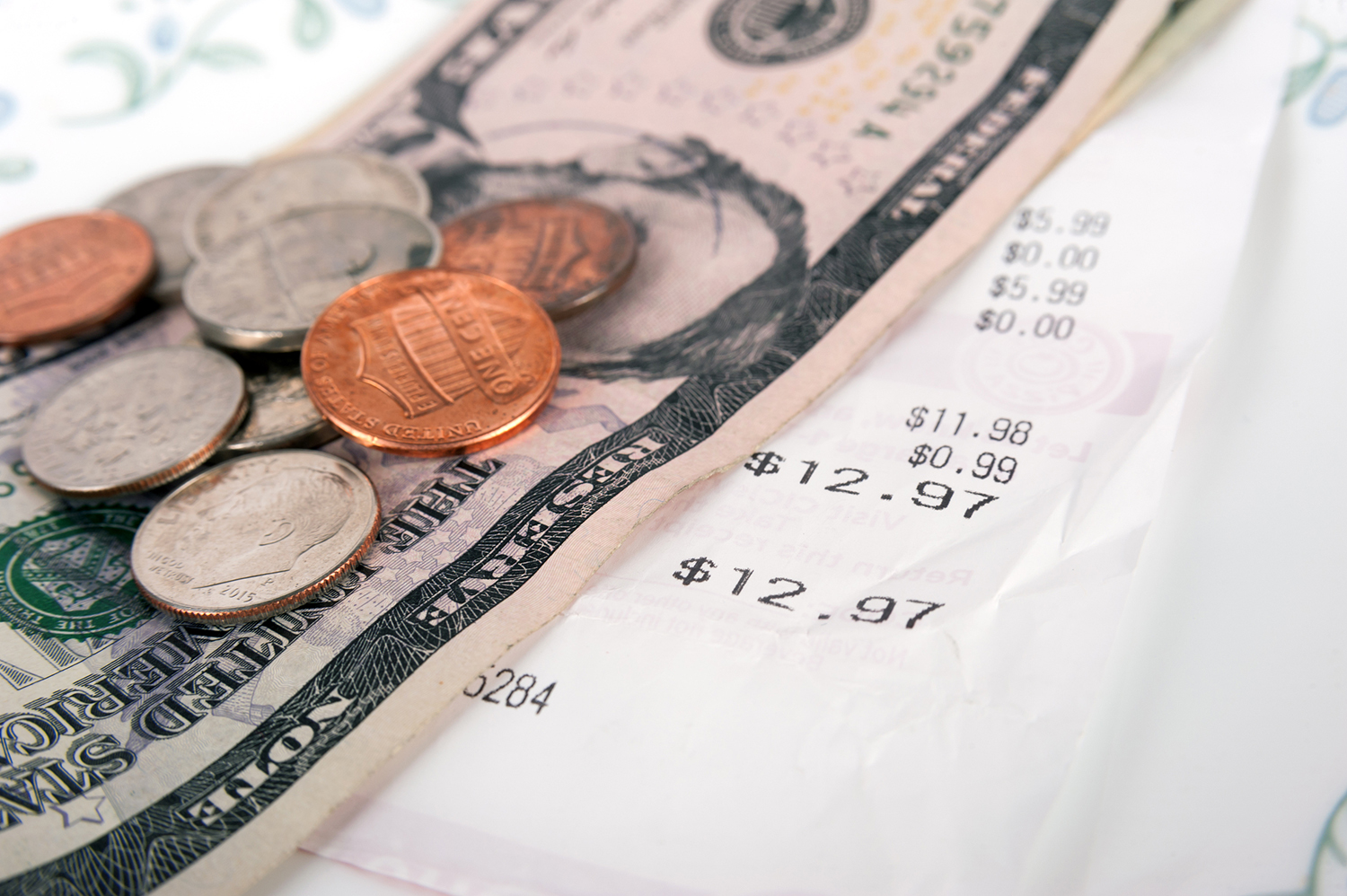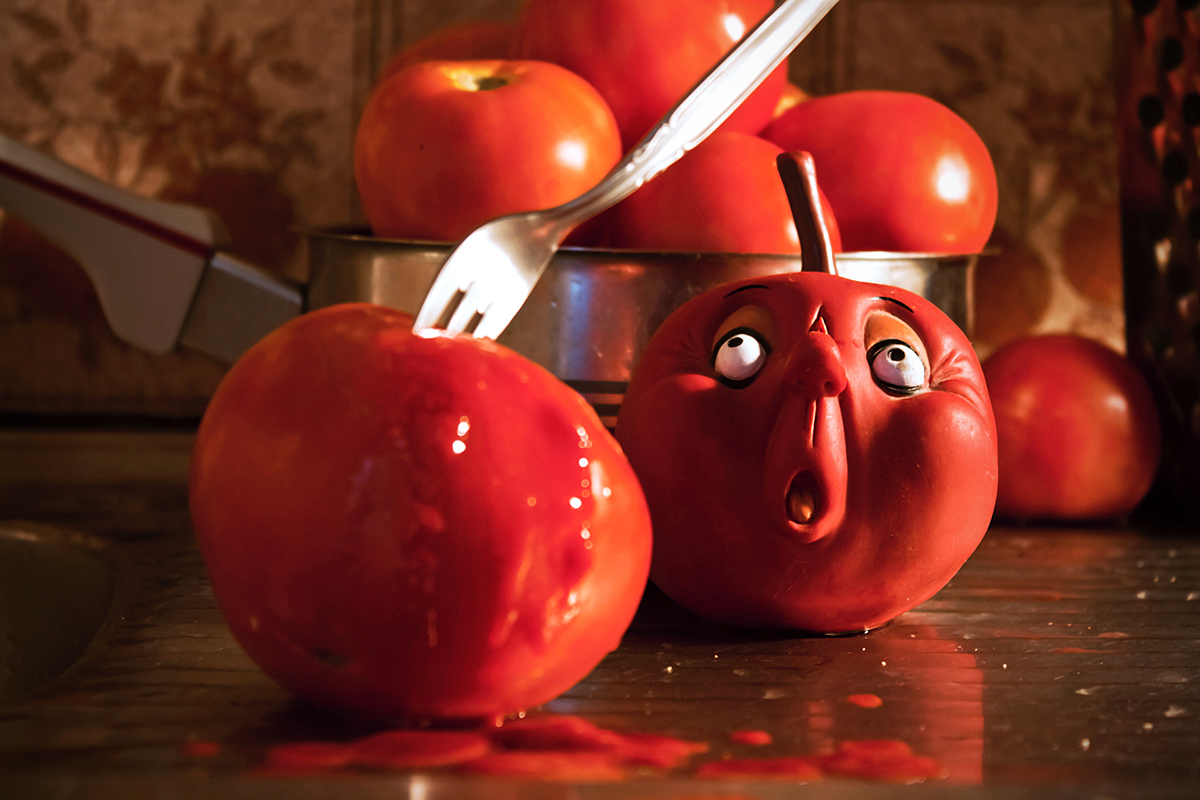No one ever considers themselves a bad customer - yet Chattanooga's restaurants are filled with servers whose stories prove how wrong some of us might be.
Like it or not, one food industry veteran says, many of us still "don't know how to 'restaurant.'" Luckily, it's never too late to learn.
Over the past month, we broke bread with servers from a few of the city's finest eateries to uncover the unspoken rules of restaurant etiquette that every customer should know. We kept their names and businesses anonymous to ensure they felt free to dish out the truth. Here is what we learned about the right way to "restaurant."
1. Yelling never gets you anywhere.
In fact, it might even make your wait longer. Hostess "Kate" admits to bumping a few guests' names down on her waiting list to punish them for acting particularly nasty toward her and other customers in response to a wait time longer than they would have liked.
It's not a move she's proud of, she says, but she's not afraid to admit that watching the perpetrators stew in frustration brought her a great deal of satisfaction.
"A lot of the time, people think their waiter is the problem, but your service will often be dictated by your attitude," Kate says.
Twenty-year food service industry veteran "Steve" agrees. If he or his staff have made a mistake, he'll own up to it and do whatever he can to make things right, he says. But if a few customers are being rude without reason or just because they don't like the venue, they may notice a considerable decline in the quality of service they receive.
"I have to ask myself: Do I want these people coming back if they're this type of guest?" Steve says. "If they're just that type of person, then maybe we won't bend over backward to make them happy, because maybe we want them to leave a little bit dissatisfied so they don't return."
2. The appropriate response to a server's "Hi! How are you doing?" is not "Can I get a sweet tea?"
"Is that really how you talk to people?" asks "Riley," who waits tables at a high-end restaurant downtown.
After five years in the restaurant industry, one of his biggest pet peeves is when customers treat him like he's less than human.
It's all about common courtesy, he explains.
"You don't have to care how I'm doing," Riley admits. A simple "good" would suffice, he says. "And then you don't even have to talk to me unless you have a question or know what you want to order."
3. If you can't afford to tip, you can't afford to go out and eat.
In Tennessee, restaurants can pay their wait staff as little as $2.13 an hour, provided employees earn a total of $7.25 an hour through tips.
The system means most servers make the majority of their wages from the generosity of others - which is why Kate says she felt "hurt" after a vacationing couple she had chatted with and drawn out maps for left her only 25 cents.
"I know they aren't trying to demean my worth, but sometimes it feels that way," she says.
Still, servers say many low tippers aren't stingy or bad people; they just don't know how much is expected.
Most in the industry will agree that a minimum 15-20 percent gratuity is appropriate, with 15 percent for OK service and 20 percent for good service. Dipping below that standard can feel like a "slap to the face," says Riley, especially after a customer has shaken his hand and thanked him for his diligence.
"This is still my job," he says. "This is how I make my money. This is how I pay the bills. I'm not just doing this to make friends; I'm doing this to take care of myself."
And... A church pamphlet is not a tip: While clearing tables, Steve has come across ministerial leaflets designed to look like $10 or $20 bills - until you pick them up and see the inscription: "This is better than money." The clever little ministerial tool may seem cute, but Steve says it's "the absolute worst way to get your message across. We're here because this is our livelihood," he reiterates. "This isn't better than money. Money is money. Understand that you're part of [restaurant] culture, whether or not you agree with tipping."
4. Lying about your allergies is a huge pain.When it comes to food prep, allergies are serious business.
The second the kitchen staff finds out you have a gluten or peanut allergy, everyone handling your meal must take extra steps to prevent cross-contamination. That might mean cleaning an entire area or sterilizing utensils or triple-checking orders, Kate says.
Many restaurants are more than happy to do the extra work to ensure the customer leaves satisfied and unharmed, she adds. But it can feel like a hassle when they discover that a patron's supposed "allergy" is just a preference or a food intolerance, which is not life-threatening and often bears no symptoms when the food is ingested in small amounts.
"So don't tell me you're allergic to tomatoes just because you don't like tomatoes," Kate stresses.
On the contrary, if you do have a food allergy, you should tell your server immediately, restaurant workers say. He or she will work to help you avoid allergens in unsuspected appetizers, entrees and desserts.
5. Just because there's an open table doesn't mean you can be seated.Sometimes a host might hold off on seating new customers because the kitchen or bar can't handle any more orders at the moment, explains Steve.
"People will see the empty tables and they'll end up getting mad," he says.
What most don't understand, he continues, is that overwhelming the bar or kitchen will result in poor service for everyone.
"I always say that we are here to make people happy," Steve says. "If we're in this industry and we've been in it for it awhile, it's because we like it and we care a lot, and we really, really do want people who come in to be happy."
6. It's rarely the server's fault when an order gets messed up.
Usually, the mistake is caused by a miscommunication in the kitchen.
"Because there are so many people working on different elements, it's easy to miss something," says waitress and hostess "Melissa," who likens the process to a game of Telephone.
Unfortunately, when something does go wrong, however, servers are usually the ones who pay the price.
Riley, for example, recalls the day a woman came in with a group and ordered a dish that was cooked in-house overnight. Throughout the meal, the party told Riley that they had no complaints, but just as they were finishing up, the woman admitted that her food had been under-cooked.
Both Riley and his manager offered to make up for the blunder, but the woman declined, insisting that it was fine.
"They were actually being very nice," Riley says. "Not rude at all about it."
When he returned to clear the table, however, he found that they had paid the amount on their tab in cash down to the penny, with not even a cent left over as a tip.
"I was so mad about it I can remember the exact amount," says Riley. "It was $52.44."
The lack of gratuity meant more than just fewer dollars in his pocket, he explains. At his restaurant, waiters tip out hosts, food runners and bartenders based on a percentage of each table's food and alcohol sales, regardless of whether the customer actually leaves a tip. As a result, Riley actually lost money from his own paycheck for something that was outside of his control.
"Whether it's your fault or not, you're the only person that they have to take that out on, either by verbally abusing you or not leaving any money," he says.
7. Flirty banter and sexual harassment are two totally different things.
A friendly smile and a charming joke might be harmless, but comments like "I'll give you a tip if you shake that a**" are totally unacceptable.
Nevertheless, those are the kinds of remarks Melissa says she heard on a weekly basis for three years while working at an upscale restaurant in Chattanooga. Many of the unwanted advances can be attributed to alcohol, she says, but according to Restaurant Opportunities Centers United, the issue goes much deeper.
In a 2014 study published by the national advocacy group, surveyors found that 90 percent of women in the restaurant industry had been sexually harassed by a customer. Most, more than once.
"You can't say anything about it because you're at your job," Melissa says. "You're still trying to act professional."
Unfortunately, many of these violations go unreported, and several women like Melissa have begrudgingly learned to ignore them. But just try to remember that your waitress's friendly smile and affectionate demeanor are part of her job - not an invitation for unwanted advances.
8. If you're done eating, it's time to leave.
When you're catching up with friends or sitting across from that special someone, it may seem harmless to spend some time lounging post-meal. But the longer those minutes stretch on, the more stress you cause the business and its wait staff, especially if you're dining out during busy hours.
"You're not only denying me the potential to make more money off of a different table while you just sit there and chit-chat, but you're also denying the restaurant a chance to make more money," Riley explains.
If you do plan to hang around a little longer, restaurant staffers add, be sure to compensate your server with a larger tip to make up for the lost time.
And... If you're coming in just to drink, sit at the bar: Sure, it's more comfortable to sit around a table while you're sipping that mojito. But depending on the restaurant, you may be shortchanging your server, who will have to tip out the bartender for your booze. If you sit at the bar and only order drinks, however, the barkeep won't need to tip out the servers or food runners, and the waiters can seat someone who may be planning to order a full meal.




